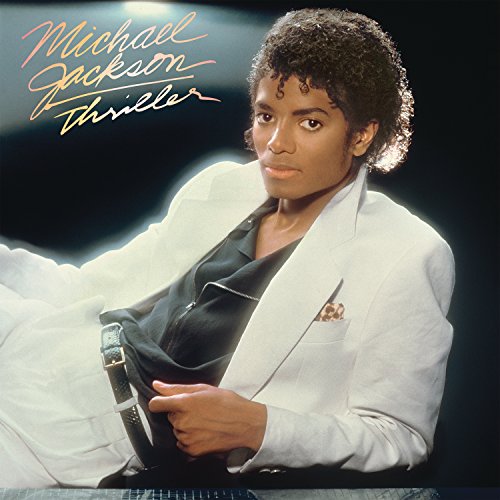23 subscribers
Looks like the publisher may have taken this series offline or changed its URL. Please contact support if you believe it should be working, the feed URL is invalid, or you have any other concerns about it.
¡Desconecta con la aplicación Player FM !
Podcasts que vale la pena escuchar
PATROCINADO

14: Shawn Wang on Open Knowledge
Series guardadas ("Feed inactivo" status)
When?
This feed was archived on January 31, 2025 12:19 (
Why? Feed inactivo status. Nuestros servidores no pudieron recuperar un podcast válido durante un período sostenido.
What now? You might be able to find a more up-to-date version using the search function. This series will no longer be checked for updates. If you believe this to be in error, please check if the publisher's feed link below is valid and contact support to request the feed be restored or if you have any other concerns about this.
Manage episode 271008617 series 2500606
What does it mean to be code adjacent? Shawn Wang joins Henry to chat about not just open code but open thinking with his experience in community managing, the idea of tumbling, moderating /r/reactjs, starting the Svelete Society meetup, documenting and learning in public, being historians of our field, fresh notes vs. awesome lists, the meta language, and adoption curves. Transcript: https://maintainersanonymous.com/open-knowledge.
Shawn: https://twitter.com/swyx
Henry: https://twitter.com/left_pad
Headings:
- Intro: Tumbling as an Alternative to Community Manager
- Specific, Limited-term Maintainer Roles
- Separation of Maintainer Concerns
- Babel W18, like YC W18
- Becoming a Moderator for /r/reactjs
- Learning with "I Promise to Answer Every Question"
- History and Memento Mori: A Time Before Git
- Where's the Story of How Projects Get Started?
- A Culture of "Document Yourself More"
- Learning Gears: Explorer, Connector, Miner
- Finding A Vision People Can Rally Around
- Being Code Adjacent
- Maybe We Need a JavaScript Community Manager
- Cheat Sheets and Awesome Lists
- Personalized Docs, Documentation Levels
- Open Source Knowledge, Proof of Work
- Twitter as a Permanent Hallway Track
- Find the Intersection of Two Communities
- Documenting Underlying Assumptions
- "Fresh notes"
- Starting a Meetup: Svelte Society
- Keeping it Alive
- Taking Part in Category Creation
- The Meta Language
- Parenting and Figuring Things Out
- Not Everything Needs to be in Public
- CSS 4: Does It Even Matter if No One Knows?
- Adoption Curves: Focusing too much on the head
- Removing the Learning Curve with Better Defaults
- Philosophy of Technology
- Spatial Software, The Mind
16 episodios
Series guardadas ("Feed inactivo" status)
When?
This feed was archived on January 31, 2025 12:19 (
Why? Feed inactivo status. Nuestros servidores no pudieron recuperar un podcast válido durante un período sostenido.
What now? You might be able to find a more up-to-date version using the search function. This series will no longer be checked for updates. If you believe this to be in error, please check if the publisher's feed link below is valid and contact support to request the feed be restored or if you have any other concerns about this.
Manage episode 271008617 series 2500606
What does it mean to be code adjacent? Shawn Wang joins Henry to chat about not just open code but open thinking with his experience in community managing, the idea of tumbling, moderating /r/reactjs, starting the Svelete Society meetup, documenting and learning in public, being historians of our field, fresh notes vs. awesome lists, the meta language, and adoption curves. Transcript: https://maintainersanonymous.com/open-knowledge.
Shawn: https://twitter.com/swyx
Henry: https://twitter.com/left_pad
Headings:
- Intro: Tumbling as an Alternative to Community Manager
- Specific, Limited-term Maintainer Roles
- Separation of Maintainer Concerns
- Babel W18, like YC W18
- Becoming a Moderator for /r/reactjs
- Learning with "I Promise to Answer Every Question"
- History and Memento Mori: A Time Before Git
- Where's the Story of How Projects Get Started?
- A Culture of "Document Yourself More"
- Learning Gears: Explorer, Connector, Miner
- Finding A Vision People Can Rally Around
- Being Code Adjacent
- Maybe We Need a JavaScript Community Manager
- Cheat Sheets and Awesome Lists
- Personalized Docs, Documentation Levels
- Open Source Knowledge, Proof of Work
- Twitter as a Permanent Hallway Track
- Find the Intersection of Two Communities
- Documenting Underlying Assumptions
- "Fresh notes"
- Starting a Meetup: Svelte Society
- Keeping it Alive
- Taking Part in Category Creation
- The Meta Language
- Parenting and Figuring Things Out
- Not Everything Needs to be in Public
- CSS 4: Does It Even Matter if No One Knows?
- Adoption Curves: Focusing too much on the head
- Removing the Learning Curve with Better Defaults
- Philosophy of Technology
- Spatial Software, The Mind
16 episodios
Tất cả các tập
×1 13: Jordan Scales on Nostalgia and Not Taking Yourself Too Seriously 1:16:49
1 10: Jonathan Farbowitz on the Commitment to Infinite Uptime 1:15:22
1 7: Philip Gee On Growing Old with the Web 1:03:31
1 6: Jory Burson on the Significance of Standards 1:04:43
1 5: Evan You on Funding One's Freedom 1:26:15
1 4: Mikeal Rogers on Getting Old in Open Source 1:23:01
1 1: Omnigamer on Speedrunning as Research 1:26:46
Bienvenido a Player FM!
Player FM está escaneando la web en busca de podcasts de alta calidad para que los disfrutes en este momento. Es la mejor aplicación de podcast y funciona en Android, iPhone y la web. Regístrate para sincronizar suscripciones a través de dispositivos.
























